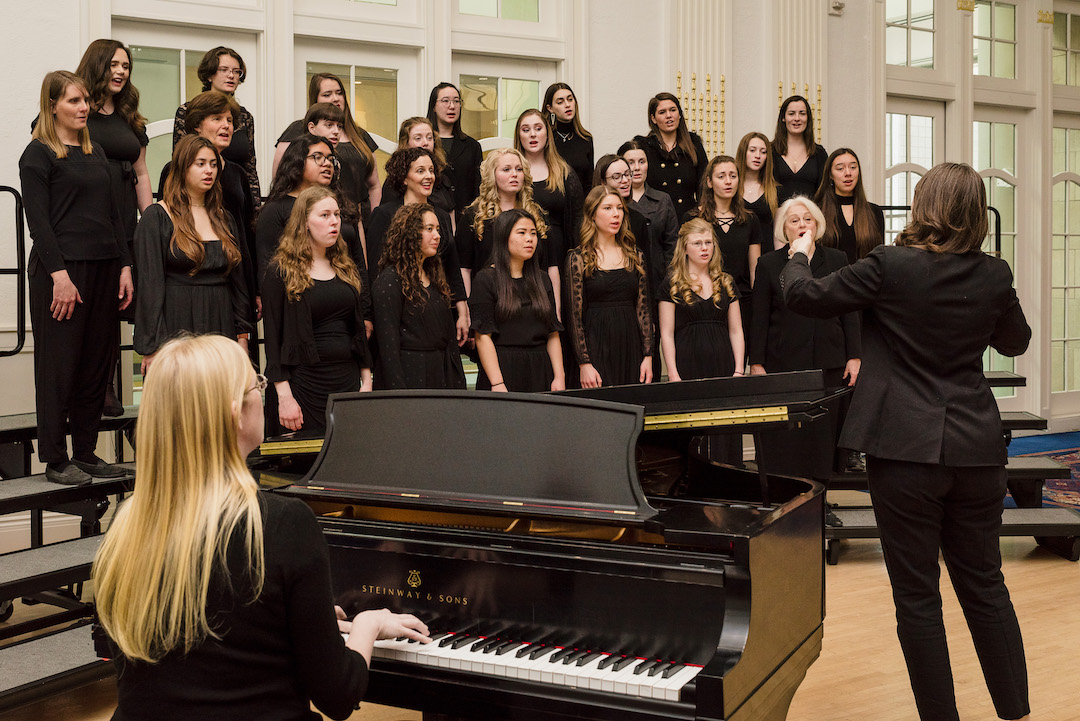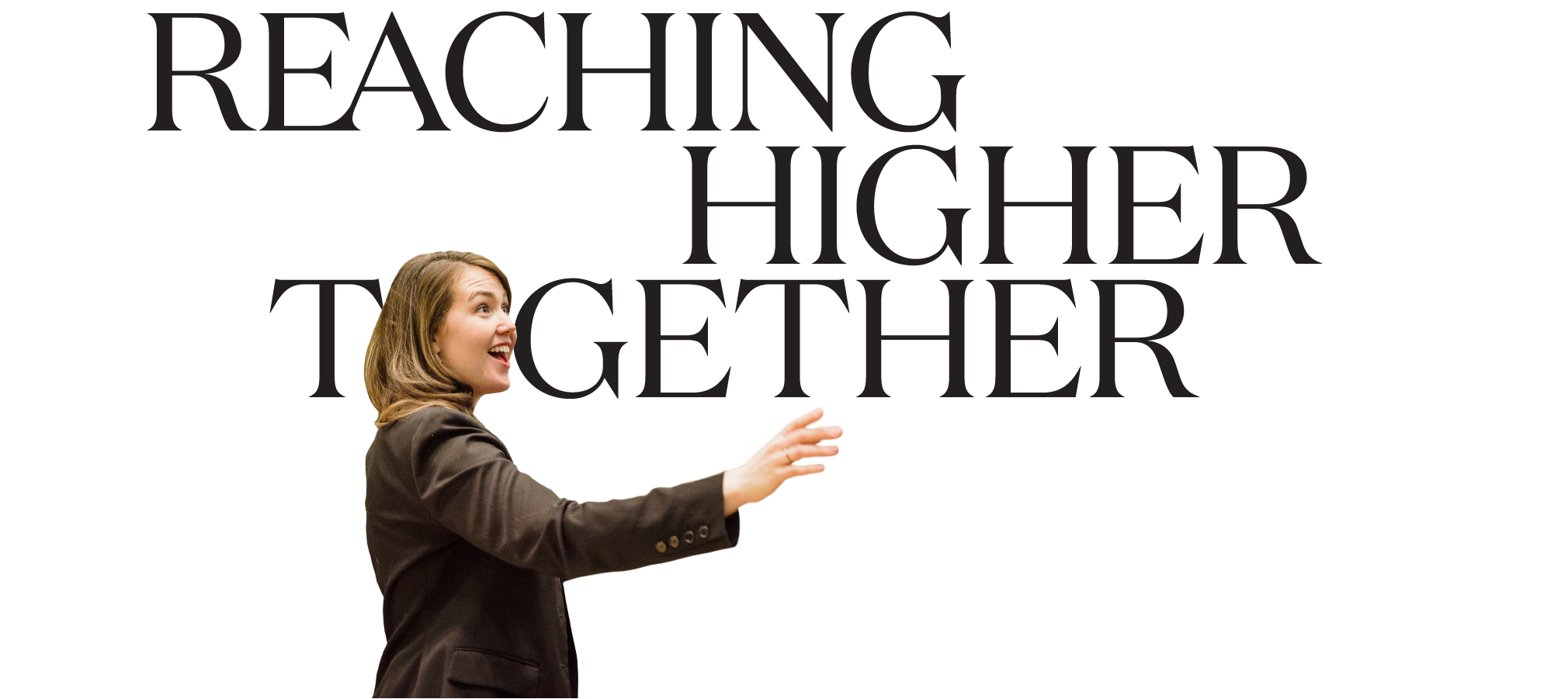Assistant professor Emily Mercado teaches choral music education and directs Voci Altissime. (Photo: Brandon Cruz Photography)
WRITTEN BY J. MICHAELA FUNANTILLA
PHOTOS BY BRANDON CRUZ PHOTOGRAPHY
University of Utah choral Assistant Professor Emily Mercado believes everyone should have access to musical experiences. She is the director of School of Music’s Voci Altissime, formerly known as the Women’s Chorus. From 18-year-olds to 70-year-olds, from music majors to continuing education students, the non-audition choir welcomes all levels of singers, blending and developing their instruments together.
Mercado was hired as an Assistant Professor in 2018 after earning her PhD in Music Education at Louisiana State University. Her teaching assistant and PhD candidate Erin Bailey said, “Mercado’s philosophy is simple: Music is for everyone.”
This philosophy prompted a change in the choir’s name. Students chose “Voci Altissime”— a name that means “high voices” and references Utah’s mountain town, Alta. If any other music ensemble changed their name, it would seem trivial. However, choirs have a unique history of being gender-specific due to cultural and physiological differences between men and women. Voci signals gender awareness and sensitivity in music education at the U.

Assistant professor Emily Mercado teaches choral music education and directs Voci Altissime. (Photo: Brandon Cruz Photography)

“Mercado recognizes that great music can only be made in a safe environment where people can take vocal and expressive risks. She works hard to make sure every individual feels needed and wanted,” said Bailey.
Mercado recognizes society as a whole is expanding understanding around gender and identity. As more research on gender emerges, presentations at conferences discuss topics like navigating the everchanging gender landscape, creating safe spaces, and teaching transgender students in the choral classroom. One conclusion is a common thread: in order to become more inclusive of all genders in choirs, educators should refrain from using gendered-language. Specifically for choirs, this is a new approach, as choral history has been deeply rooted in gender specifics.
The separation between male and female voices began in the fourteenth-century when boys’ choirs were established and some music was sung by young male sopranos and altos. Physiologically, male and female voices require different training exercises and techniques that are easier to achieve when the genders are separated. Especially when it comes to young singer’s vocal development through the various stages of puberty. Because of this, it was natural to associate high voices with women and low voices with men.
In her article on transgender singers, LSU professor and a chair of the National Association of Teachers of Singers, Loraine Sims said a voice can’t be tied to gender if we want to change binary thinking. Choral educators like Mercado, are changing their choir names and practicing non-binary language. Mercado teaches these ideals to her students that are currently teaching in local high schools as part of their studies.
Research shows that an individual can experience distress being assigned to a group that identifies as a specific gender. Even though a choir’s name change may seem insignificant, according to California State University voice professor, Joshua Palkki, small changes can have a “deep emotional impact on a trans student.” Palkki often presents at national research and practitioner conferences, addressing LGBTQ and gender issues in music education. He said that it is especially important for educators to provide safe spaces and explicitly make their acceptance known to students.
“If an individual is happy being in a choir in which they best identify, then that’s worth the extra work and the unique sound that the choir might produce,” said Mercado.
Voci member and music major Betsy Andrews appreciates Mercado’s open class environment—setting an example of vulnerability allows her students to do the same. Andrews has experienced both auditioned and non-auditioned choirs. In her opinion, auditioned-choirs invest in the performance end-product but “Voci invests in the experience, the people, and the connections you make with others. It’s a safe place, no one is left out, and no one is just a voice in the choir. We are one voice, one team, one family,” said Andrews.
It’s this focus on personal development that drives students to Mercado’s class. Voci being a non-auditioned ensemble makes it ideal for beginners and students who want to be part of a musical group without the pressure of an intense performing experience. However, the ensemble also performs challenging 3- and 4-part treble repertoire, and some students enrolled in Voci Altissime have sung in choirs for many years. This allows students the freedom to focus on individual goals under Mercado’s collaborative and safe environment.
The Women’s Choir changing its name to Voci Altissime in order to encompass all identities is only the natural outcome for a choir that already cherishes community and personal growth.
“It’s great to see the choir take initiative and address the questions of gender identity,” said the Director of the School of Music, Miguel Chuaqui. “A more inclusive choir is sure to lead to a more diverse musical experience.” ■













